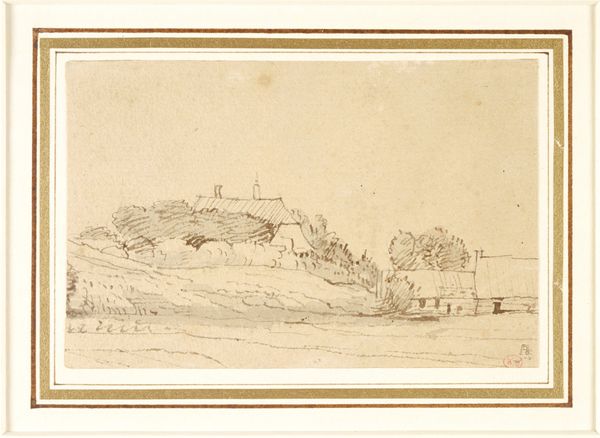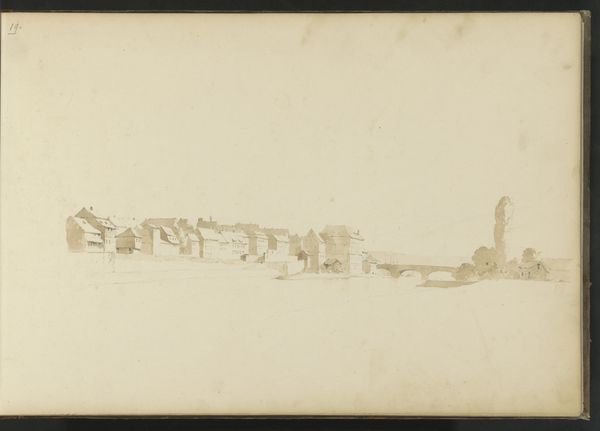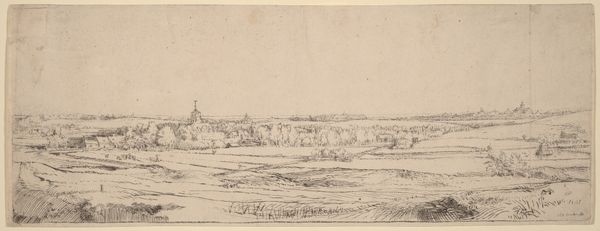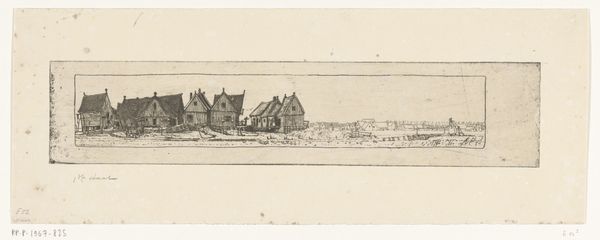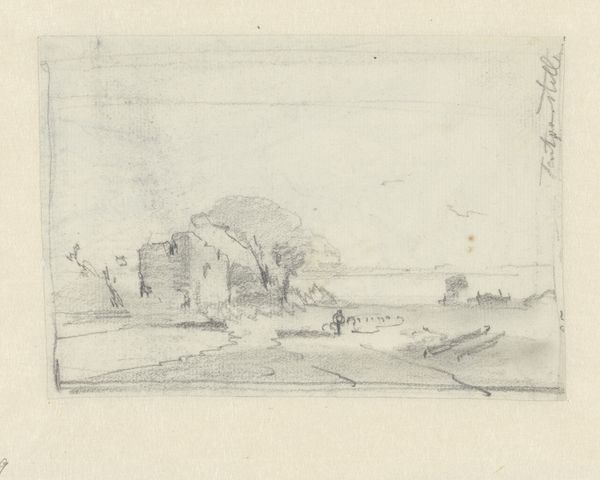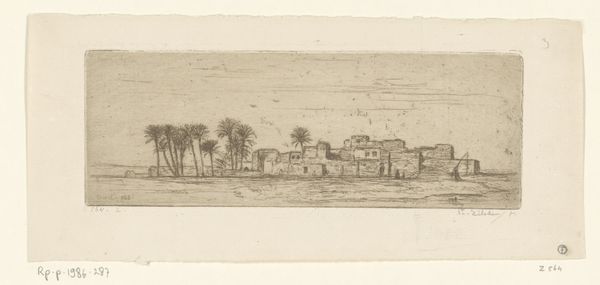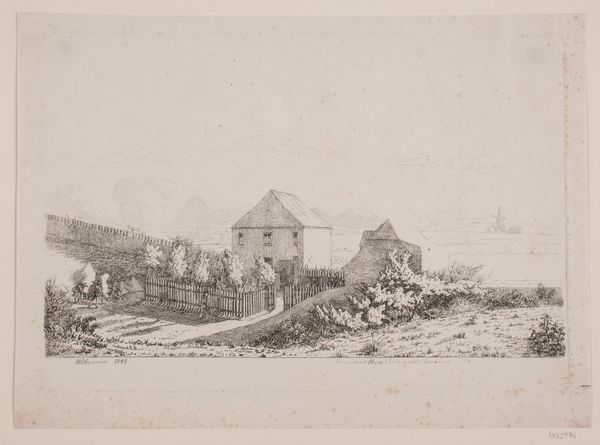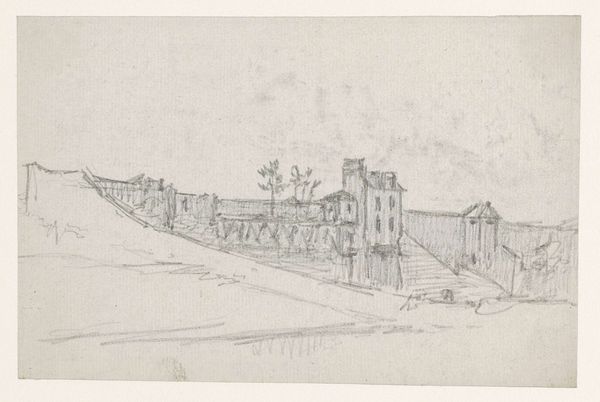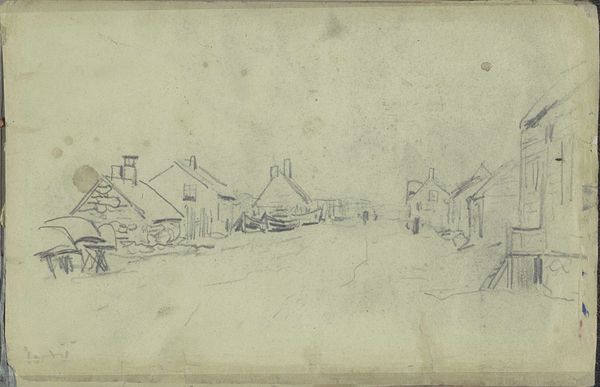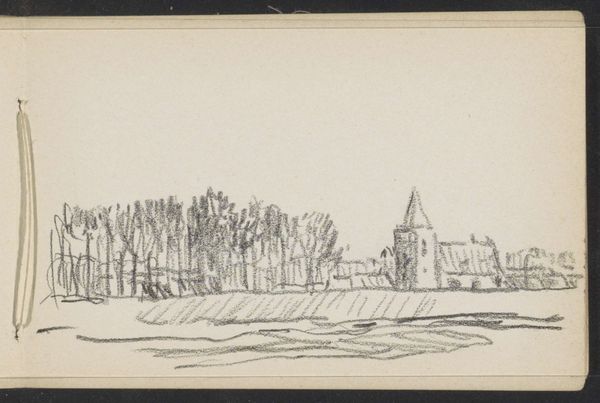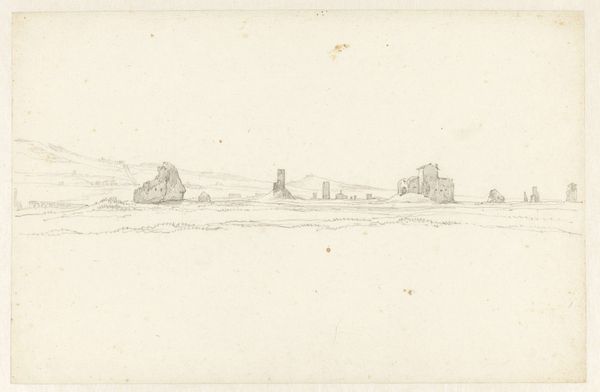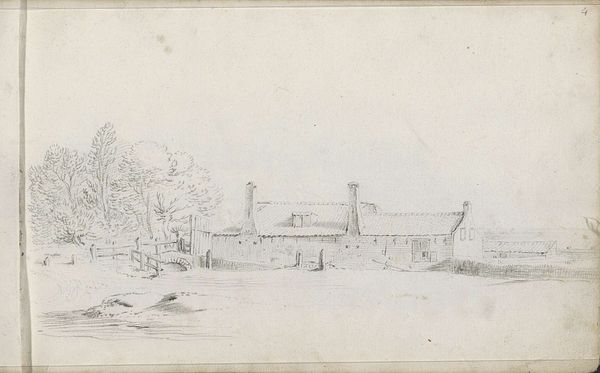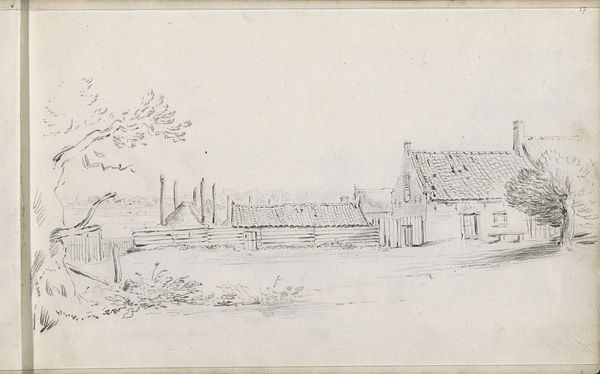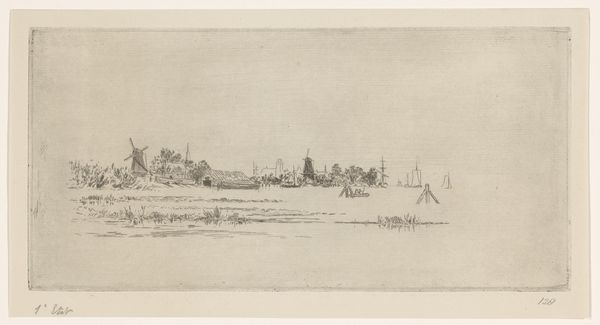
drawing, pencil
#
drawing
#
16_19th-century
#
landscape
#
german
#
pencil
#
realism
Copyright: Public Domain
Curator: What a wonderfully understated drawing. A quiet piece of realism, don’t you think? Editor: Absolutely. I see a rather ghostly visage. A sense of temporal remove washes over me – like glimpsing a forgotten hamlet through a veil. Curator: That's beautifully put. This is a pencil drawing entitled "Walldorf," made by Peter Becker, its exact date, regrettably, is unknown, but it resides here in the Städel Museum. Editor: The clustered buildings beneath a wide sky…the steeple reaching upward...do these signify something particular to you? Perhaps invoking village community against an eternal power? Curator: Becker came of age amidst rising German nationalism, even though, to some, that reality has come off of the rails more recently, and there's often disagreement over what iconography truly speaks to nationalist pride. What’s quite interesting is how artists were working to define a cultural identity rooted in local landscapes. Editor: Ah, the picturesque as a political project! So these buildings are not just buildings, but vessels of a certain collective memory? Curator: Exactly! They become symbols of rootedness, of an inherent connection to the land, particularly poignant for an audience grappling with rapid industrialization and urbanization. The village isn’t just a place; it's a repository of tradition. It has come to mean different things at different points, too. Editor: That speaks powerfully through this gentle medium. Pencil itself feels… humble, unpretentious. There’s no aggressive assertion here, but a soft, insistent claim. Curator: Precisely. And the drawing style lends itself well to that idea. Becker captures not just the architectural details but also the mood of the place—a kind of timeless serenity, before our later association of it with less peaceful ideas, obviously. Editor: It is a visual echo—a subtle, thoughtful reflection on place and belonging, rendered in the softest graphite. Thanks for drawing my attention to this subtle work. Curator: Thank you. It's in these quiet pieces that history often whispers most eloquently.
Comments
No comments
Be the first to comment and join the conversation on the ultimate creative platform.
